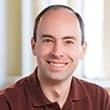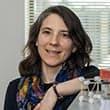Master practical calculus applications for science, engineering, and everyday scenarios - from modeling growth to optimizing efficiency.
Master practical calculus applications for science, engineering, and everyday scenarios - from modeling growth to optimizing efficiency.
Explore the practical applications of calculus in this Harvard course designed to bridge the gap between theory and real-world problem-solving. Working with practitioners from social, life, and physical sciences, you'll discover how calculus and mathematical models are used in diverse fields. From analyzing standardized test questions to predicting population changes in biology, this course offers authentic case studies that demonstrate the power of calculus in action. You'll engage with hands-on exercises, analyzing data, crafting equations, and making predictions using calculus computations. Ideal for students who have completed a single-variable calculus course or professionals seeking to deepen their understanding, this course provides a unique perspective on how mathematical concepts translate into practical solutions across various disciplines.
4.8
(32 ratings)
1,59,250 already enrolled
Instructors:
English
English
What you'll learn
Apply calculus concepts to solve real-world problems in various scientific fields
Analyze and create mathematical models for complex systems
Understand how functions are used to model real-world phenomena
Apply derivatives and rates of change in economic and social science contexts
Use integrals to solve problems in physics and medical imaging
Develop and analyze differential equation models for biological systems
Skills you'll gain
This course includes:
PreRecorded video
Graded assignments, exams
Access on Mobile, Tablet, Desktop
Limited Access access
Shareable certificate
Closed caption
Get a Completion Certificate
Share your certificate with prospective employers and your professional network on LinkedIn.
Created by
Provided by

Top companies offer this course to their employees
Top companies provide this course to enhance their employees' skills, ensuring they excel in handling complex projects and drive organizational success.





Module Description
This course explores the practical applications of calculus across various scientific disciplines. Students will engage with real-world case studies that demonstrate how calculus concepts are used to solve problems in fields such as economics, biology, physics, and social sciences. The curriculum covers a range of topics, including the use of functions in standardized testing, economic modeling of price and demand, applications of integrals in medical imaging, differential equation models in population biology, and statistical modeling of data distributions. Students will learn to analyze and create mathematical models, understand the role of variables, constants, and parameters in these models, and appreciate the complexities involved in applying mathematics to real-world situations. The course emphasizes hands-on learning, with students working directly with data, graphs, and equations to make predictions and solve problems. By the end of the course, participants will have a deep understanding of how calculus is applied in various professional fields and be able to approach complex problems using mathematical modeling techniques.
Fee Structure
Instructors

1 Course
Mathematical Biology and Medicine Expert
Dr. John Wesley Cain serves as a Senior Lecturer on Mathematics at Harvard University, where he specializes in the intersection of mathematics with medicine and biology. After earning his PhD from Duke University in 2005, he built his academic career with a decade of experience as a mathematics professor in Virginia before joining Harvard's faculty in 2015. His work exemplifies the growing integration of quantitative methods with biological sciences, contributing to the interdisciplinary bridge between mathematical modeling and life sciences. Through his teaching and research, Dr. Cain helps students develop strong foundations in mathematical concepts while applying these skills to biological and medical problems, reflecting the modern trend toward quantitative approaches in life sciences.

1 Course
Mathematics Education and Number Theory Scholar
Dr. Juliana Belding serves as Professor of the Practice and Assistant Chair for Undergraduates in the Mathematics Department at Boston College, where she focuses on enhancing mathematics education at both undergraduate and K-12 levels. Her academic journey includes earning a PhD in algebraic number theory and cryptography from the University of Maryland in 2008, followed by a position as a Preceptor at Harvard University, where she developed innovative calculus curricula that emphasized interdisciplinary connections. In her current role, she leads undergraduate programs and continues to advance mathematics education through her expertise in teaching methodologies and curriculum development. Her work bridges the gap between theoretical mathematics and practical applications, helping students build stronger connections between calculus and other fields of study.
Testimonials
Testimonials and success stories are a testament to the quality of this program and its impact on your career and learning journey. Be the first to help others make an informed decision by sharing your review of the course.
Frequently asked questions
Below are some of the most commonly asked questions about this course. We aim to provide clear and concise answers to help you better understand the course content, structure, and any other relevant information. If you have any additional questions or if your question is not listed here, please don't hesitate to reach out to our support team for further assistance.



